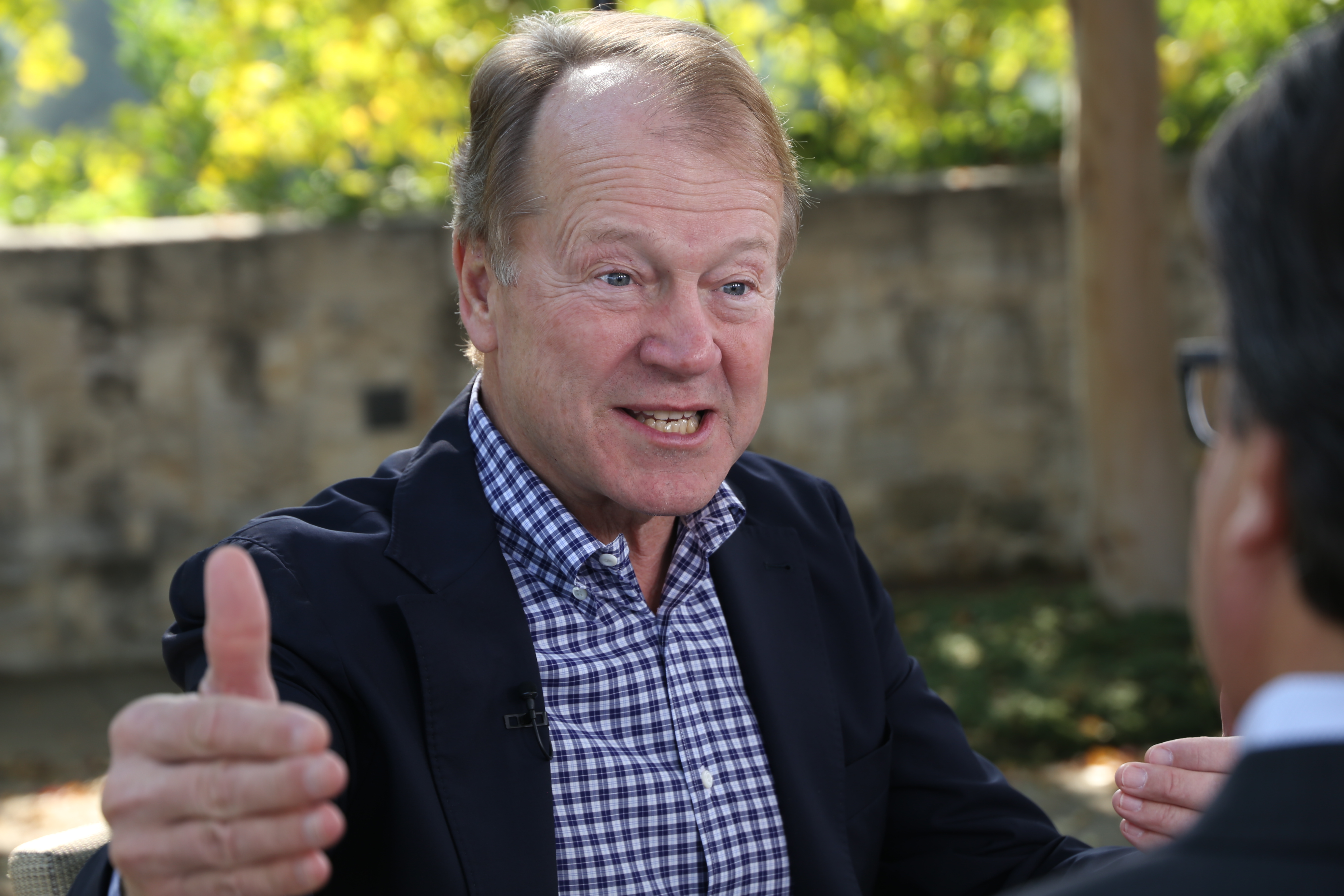 EMERGING TECH
EMERGING TECH
 EMERGING TECH
EMERGING TECH
 EMERGING TECH
EMERGING TECH
What is in the air in Silicon Valley that makes it America’s tech innovation greenhouse? Did an unpredictable swirl of gasses create the universe of Google, Facebook, Apple, et al.? Surely, Saint Paul, Minnesota, or Newark, New Jersey, would love to reproduce a boon like that in their economies. So why haven’t they?
There is nothing that mysterious about Silicon Valley, according to John Chambers (pictured), chairman emeritus and former longtime chief executive officer of Cisco Systems Inc. Concrete institutions and people and learnable processes made it what it is.
There is no reason why all U.S. states, as well as regions outside the U.S., can’t procure the ingredients to produce their own unique “startup engines,” according to Chambers. Guiding them along that path is part of Chambers’ vision as founder and chief executive officer of JC2 Ventures, a firm enabling startups to deliver and scale solutions for a digital future.
“People try to mimic Silicon Valley, but they do it in silos,” Chambers said. “What made Silicon Valley go was an ecosystem — an education system, an environment for risk-taking, role models.” Chambers recently announced plans to clone Silicon Valley in none other than the state of West Virginia.
A native of the state, Chambers recently granted West Virginia University, where he’s an alumnus, resources to support a startup engine at its College of Business and Economics. The gift of time, talent and money was generous enough to have the college rename itself the John Chambers College of Business and Economics.
“The education’s a huge part,” Chambers said. “At the core of almost all great startup engines is a really world-class university.”
Chambers spoke with John Furrier, host of theCUBE, SiliconANGLE Media’s mobile livestreaming studio, as part of the Mayfield People First event that recently took place in Menlo Park, California. They discussed Chambers’ mission to replicate Silicon Valley through the U.S. and beyond, as well as why the workforce is riding on startups. (* Disclosure below.)
For all the innovative output of Silicon Valley, the U.S. overall is lagging behind other nations, according to Chambers. “We’re not No. 1 in innovation; we’re No. 11,” he said.
This situation can and should be remedied by pollinating the Silicon Valley methods and mentality across the US, he explained. But West Virginia — really?
“Before you say it can’t be done, that’s exactly what people said first about India when I said India will be the strongest-growing economy in the world. And it is today,” Chambers said.
In his days at Cisco, Chambers did a lot of international work. He learned much about how nations can come from behind, digitize and build startup hubs. India isn’t the only nation to pull off a surprising leapfrog in recent years. Just a few years ago, no one would have thought France would be the innovation engine for Europe. Yet it has indeed become Europe’s startup engine, Chambers pointed out.
Also, there was a time not so long ago when Silicon Valley was not seen as having some kind of patent on tech innovation. Until the 1980s, Route 128 in Boston was America’s tech mecca. Then Silicon Valley boomed, and today lots of young people in tech have never heard of Route 128. Again, a stellar university — the Massachusetts Institute of Technology — fed the engine.
This is why Chambers is so sure that beefed-up university programs can spur startups in West Virginia and elsewhere. He’s having a go at it in seven states so far.
Almost all job creation in the future will come from startups and from existing small but growing companies, according to Chambers. “If these small companies don’t get formed in all 50 states, if they don’t have a chance to grow their headcount there and the economic benefits of that, then we’re going to leave whole states behind,” he said.
Chambers just released a book titled “Connecting the Dots: Leadership Lessons in a Start-up World” in which he “shares the lessons that transformed a dyslexic kid from West Virginia into one of the world’s best business leaders and turned a simple router company into a global tech titan.
Here’s the complete video interview, part of SiliconANGLE’s and theCUBE’s coverage of the Mayfield People First event. (Disclosure: TheCUBE’s coverage of the Mayfield People First event is presented by Mayfield Fund LLC.)
THANK YOU